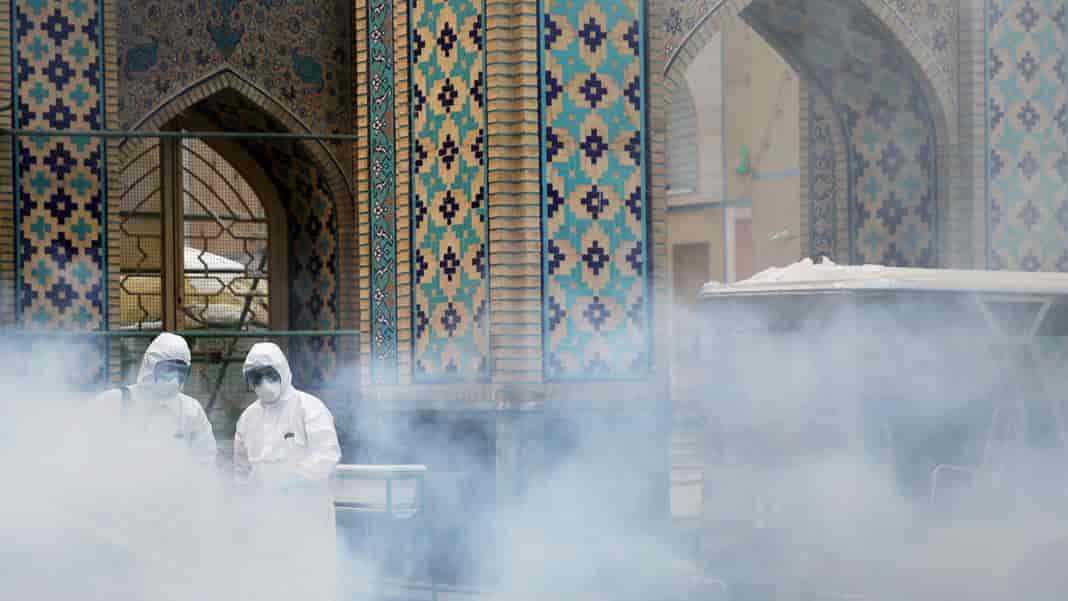The streets of Iran’s capital city Tehran have come to a standstill. There are no musicians in the public buses anymore. The roadside gemstones sellers are missing too.
For the past more than two weeks, I’ve been waking up every day to panicked texts and numerous calls from acquaintances. I’m forced to stay home all day — with nothing to do. If moving out of the house is the last option — everyone makes sure to put on a face-mask and wear hand gloves. I am even afraid to go to the grocery store; if I need something, I order online.
On 19 February, when we read reports of two positive coronavirus cases in Iran — we didn’t realise that it could turn out so serious. After more than sixteen days of the regional outbreak, the numbers of cases have risen to more than 3,500 with over a hundred dead.
From the official telegram channel of our university, Tehran University of Medical Sciences, we got to know that our examinations scheduled on 27 February have been postponed to 8 April. All classwork was called off.
I wanted to go back home — Kashmir — immediately. In a hurry, I went to a travel agency and booked the nearest available flight to New Delhi on 27 February. But the next day, the UAE government banned all flights from Iran — including my flight. I rushed to the travel agency with my friends again; this time to book a direct flight from Tehran to Mumbai on 6 March. Later, it was cancelled too.
The fact that I won’t be flying back to Kashmir disappointed me. I was too afraid to tell this to my parents, fearing they will get more worried.
Meanwhile, the novel coronavirus — which World Health Organisation named COVID-19 — was spreading across the world. By now, it has infected more than one lakh people and claimed the lives of more than 3,300 — mainly in mainland China, though.
Hoping to be evacuated, we reached out to the Indian Embassy in Tehran. Asking us to abide by the WHO guidelines, they gave us their emergency phone number and an email ID so that we can remain in touch with them. And the Embassy told us that they are trying to work it out.
We contacted a few of our friends, who were evacuated from Chinese cities, to ask how this works. They advised us to talk to the media and highlight the issue. Meanwhile, our parents also reached out to talk to some politicians, bureaucrats, and the Ministry of External Affairs in New Delhi. They were assured of a positive response.
But this positive response is seemingly taking way too much time; with every passing day here, our worries are rising with the increasing chances of getting infected.
On 5 March, the Minister of External Affairs, S. Jaishankar, tweeted: “Update for Indians stranded in #Iran and for their families: Our medical team for screening arrives in Iran today. Hope to establish the first clinic at Qom by this evening. Screening process will start immediately thereafter. Working on logistics of return with Iranian authorities.”
We are not sure of when our turn will come; we haven’t received any updates regarding this either.
Currently, there are more than 170 Kashmiri students studying in my university and, with God’s grace, all of them are in good health. But the wildfire nature of its spread around the world worries us — we fear that we might get infected as well.
Being stuck is hard; waiting to get back home is harder. Every day is a struggle; the courage that I need to gather to face my family and tell them that I won’t be coming takes a toll on me.
But amidst the mess, the university has been helpful all along. They have issued travel guidelines — asking us to avoid all unnecessary travels — providing us free meals and free medical health checkups.
The false rumours on social media add to the toll among us and the family. A few try to spread panic while others downplay the crisis. For instance, a few days ago I read an article which claimed that we were desperate to go back home just for “vacations” and the situation in Iran was “normal and stable”. Another one claimed that there was a shortage of food, which is not true at all.
Both sides upset almost all of us.
To lessen our stress and anxiety, we play indoor and online games like UNO, Chess, PUBG Mobile, and others. But honestly, we experienced true relief all these days when we were able to see the faces of our family members — when the local authorities lifted internet restrictions this week.
I was seeing them for the first time since September 2019. I could not hold back my tears of joy. When I saw their worried faces, as they asked me to take care of myself, I just prayed to return home sooner.
The story appeared in our 9-15 March 2020 print edition.
The author is pursuing MBBS at Tehran University of Medical Sciences.
The Kashmir Walla needs you, urgently. Only you can do it.
We have always come to you for help: The Kashmir Walla is battling at multiple fronts — and if you don’t act now, it would be too late. 2020 was a year like no other and we walked into it already battered. The freedom of the press in Kashmir was touching new lows as the entire population was gradually coming out of one of the longest communication blackouts in the world.
We are not a big organization. A few thousand rupees from each one of you would make a huge difference.
The Kashmir Walla plans to extensively and honestly cover — break, report, and analyze — everything that matters to you. You can help us.









